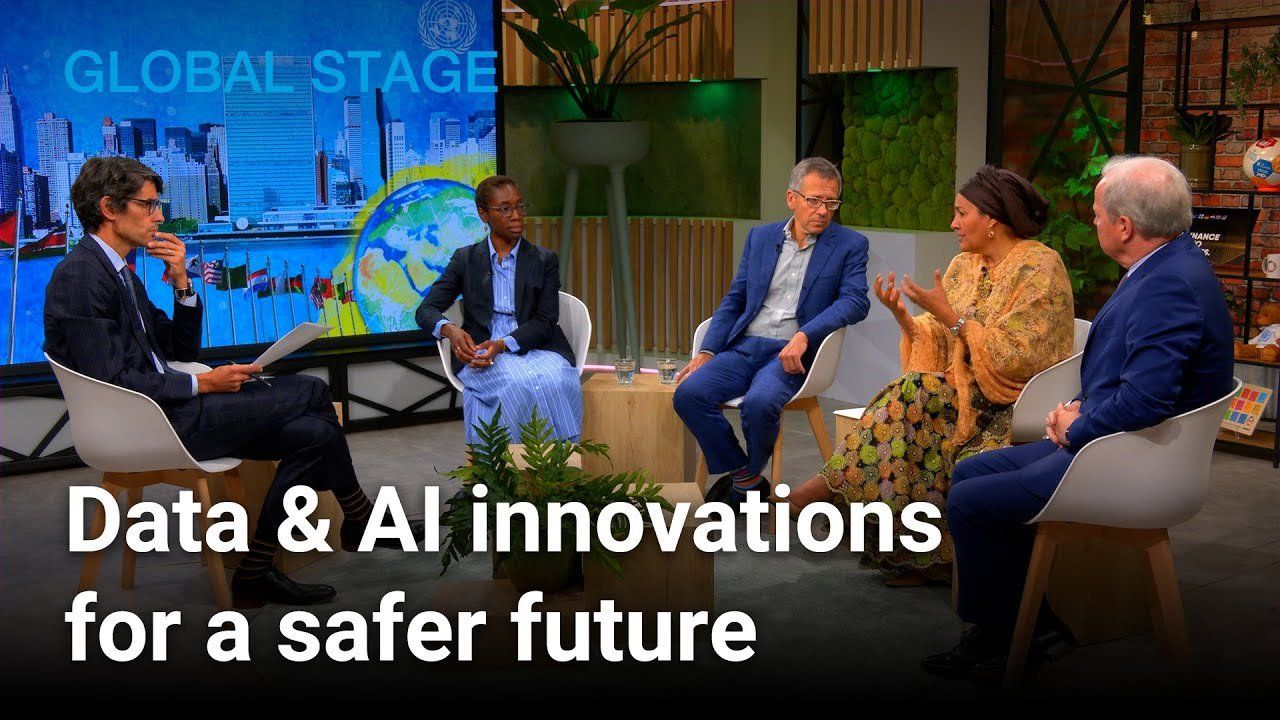Digital Governance
Can data and AI save lives and make the world safer?

Can data and AI save lives and make the world safer? | Global Stage | GZERO Media

The global climate crisis is acute. In the last few months alone, Hawaii, Morocco and Libya have experienced climate-linked catastrophes that have wiped out communities and killed tens of thousands of people.
At the same time, emerging tech – notably artificial intelligence and data ecosystems – are becoming increasingly sophisticated and influential. There’s been much focus on the perils and threats posed by these scientific developments, but how can they be proactively harnessed to mitigate climate challenges and create a more resilient world?
On the sidelines of the UN General Assembly in New York, GZERO Media held a Global Stage livestream event unpacking these complex challenges and opportunities, in collaboration with the United Nations, the Complex Risk Analytics Fund, and the Early Warnings for All initiative.
This urgent conversation was be moderated by Nick Thompson, CEO, The Atlantic; and featured Melinda Bohannon, Director General of Humanitarian and Development at the UK’s Foreign Commonwealth & Development Office; Ian Bremmer, President and Founder of Eurasia Group and GZERO Media; Vilas Dhar, President and Trustee, Patrick J. McGovern Foundation; Dr. Comfort Ero, President and CEO of International Crisis Group; Mami Mizutori, Special Representative of the UN Secretary-General for Disaster Risk Reduction; Amina Mohammed, UN Deputy Secretary-General; Amandeep Singh Gill, UN Envoy on Technology; Brad Smith, Vice Chair and President, Microsoft; Axel van Trostenburg, World Bank Managing Director; and Anne Witkowsky, Assistant Secretary of the Bureau of Conflict and Stabilization Operations at the US Department of State.
Emerging tech is presenting huge opportunities to identify climate hotspots and scale damage and destruction. Indeed, Smith says that satellites are able to not only capture visual images, but also gather “data streams” on fossil fuel emissions. In addition, AI is also being harnessed to identify communities affected by climate calamities and see which “people have been rendered homeless.” Still, tech companies can’t do it alone. In order to identify what their exact needs are, Smith adds, partnerships with NGOs and other stakeholders are key.
Amandeep Singh Gill had much to say about how these processes are applied in real time, particularly when addressing world hunger. “Across 90 countries, 700-800 million people are at risk of food insecurity,” he notes, adding that using data across institutions has allowed the multilateral organization “to get assessments about where food insecurity is going to spike next, and that allows us to respond in a better way.”
Still, having access to copious amounts of data is one thing, but figuring out how to use it to effectuate change is quite another. “There's a real gap between the information that's out there and the ability to act upon the information that's out there,” Dr Ero says, adding that “lack of policy and action” and failure to act quickly when crises are identified are hindering these global efforts. Dr Ero points to the situation in Somalia, which is still grappling with an insurgency by the Al-Shabaab terror group while also facing floods and trying to rebuild its society. “All the data points are showing the stresses that Somalia has to deal with, but why aren't we able to respond to that?” she asks, highlighting poor governance and lack of political will as impediments to progress.
When asked about how these issues might be affected by the fact that heads of state from four out of five permanent members of the UN Security Council did not show up at the UN General Assembly this week, Amina Mohammed said there is “huge momentum” from governments and stakeholders. “The 2030 agenda is urgent, and we really do just feel that there is a movement to make that happen. There's a sense of determination … too many people are at stake.”
And there’s one elephant in the room when discussing climate change and tech advancements: China. One big issue, Bremmer notes, “is that China is really distracted by very significant domestic economic challenges and that has put real constraints, material constraints, on their foreign policy strategy over the long term,” he says.
100 million: The number of people expected to watch the Super Bowl halftime performance with Bad Bunny, the Puerto Rican superstar and newly minted Album of the Year winner at the Grammys.
Think you know what's going on around the world? Here's your chance to prove it.
An imminent US airstrike on iran is not only possible, it's probable.
Americans are moving less — and renting more. Cooling migration and rising vacancy rates, especially across the Sunbelt, have flattened rent growth and given renters new leverage. For many lower-income households, that relief is beginning to show up in discretionary spending. Explore what's changing in US housing by subscribing to Bank of America Institute.